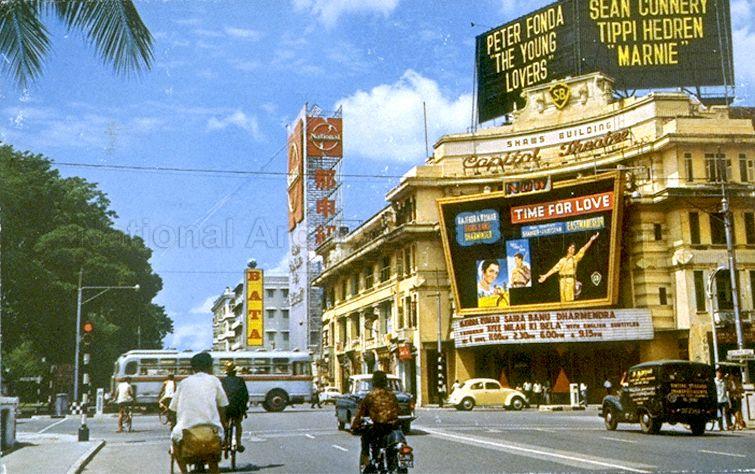Capitol Theatre and Building are iconic buildings that were completed by the early 1930s. In 2007, they were gazetted for conservation.
Here are some interesting nuggets of history you might not know about the place:
1. Capitol Building was originally known as Namazie Mansions.
Namazie Mansions was named after its owner, Mirza Mohamed Ali Namazie, a Persian businessman.
He owned both the theatre and the adjoining residences, commonly referred to as 'Capitol flats'.
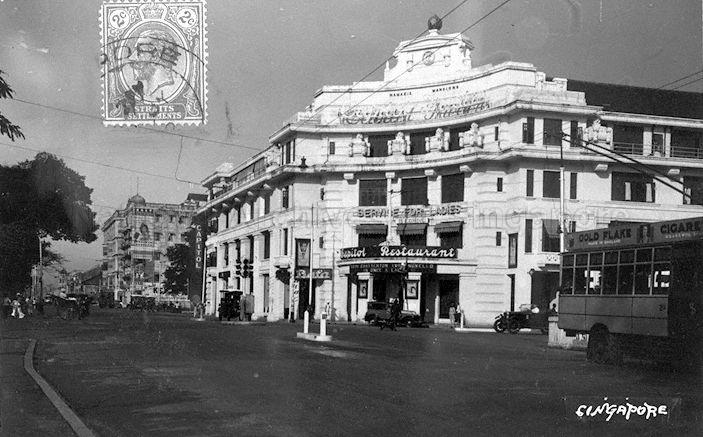 Postcard of Capitol Theatre from the 1930s, photo from NAS
Postcard of Capitol Theatre from the 1930s, photo from NAS
Capitol Building fronts the theatre and large billboards announcing the latest films were displayed there.
Because of these billboards, people often confused Capitol Building with Capitol Theatre.
2. It used to have a retractable ceiling.
Most people today might be familiar with the iconic zodiac ceiling:
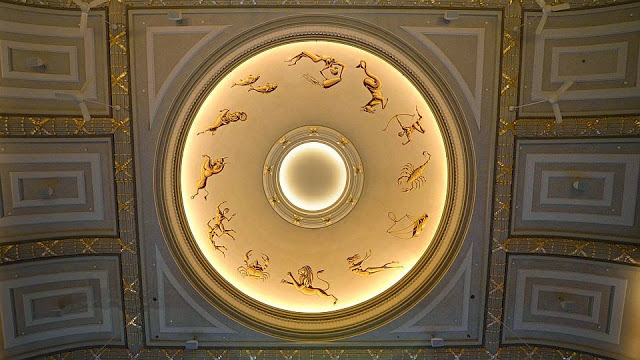 Photo of restored ceiling from Hoosier Dome
Photo of restored ceiling from Hoosier Dome
Before the zodiac ceiling was installed, the original theatre (before it was acquired by Shaw) had a retractable domed ceiling.
On nights with good weather, the ceiling would be opened and movies would be screened under the stars.
3. It once showed Japanese war propaganda films.
During the Japanese Occupation of Singapore from 1942 to 1945, the theatre was renamed Kyoei Gekkyo.
Western films were banned and the theatre screened Japanese propaganda films.
4. Capitol Theatre was Shaw's flagship cinema.
In 1946, the Namazies sold Capitol Theatre and Namazie Mansions to Shaw Organisation.
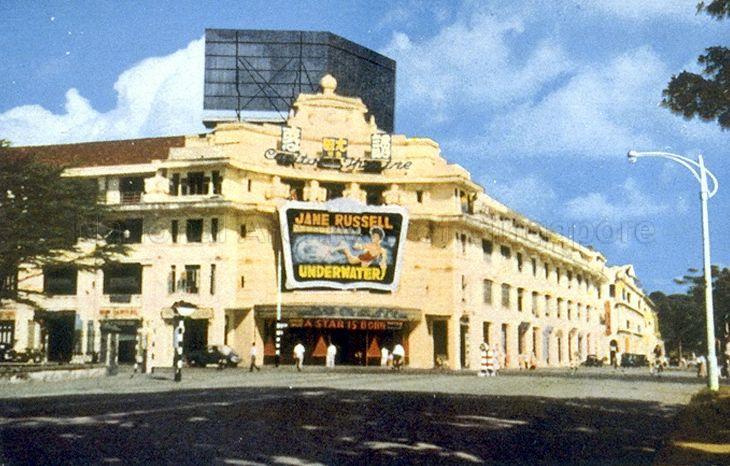 Photo of the building in 1955, from NAS
Photo of the building in 1955, from NAS
Shaw Organisation has been a major player in the Asian film industry since the 1920s.
Capitol Theatre was their flagship theatre. Shaw opened Rex and Lido theatres in later years.
5. It was home to a famed snack bar.
Capitol Building was home to a popular hangout called Magnolia Snack Bar. It opened in the 1940s and offered Western-style meals with Hainanese influences. It was also famous for its Magnolia ice cream and milkshakes.
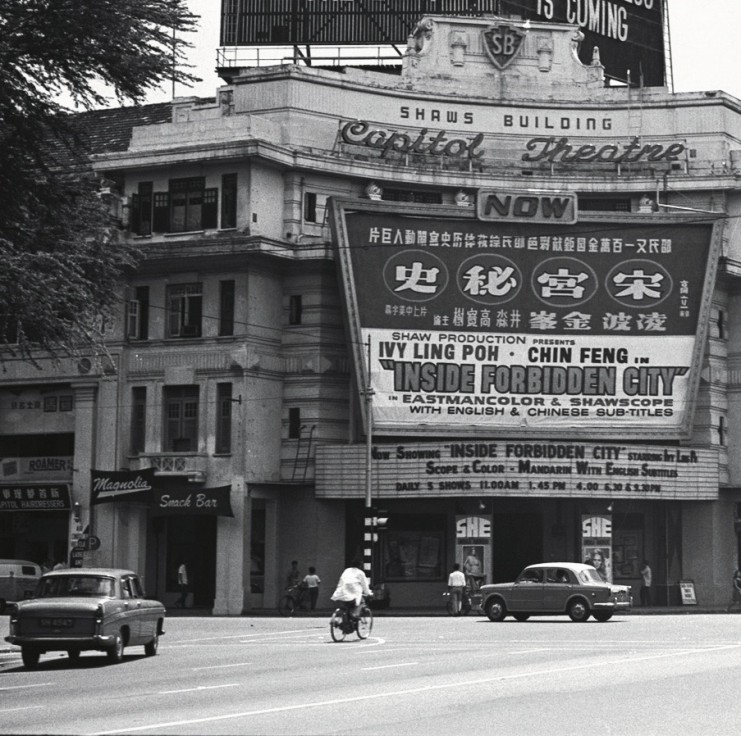 Photo via The Peak
Photo via The Peak
The snack bar closed in 1988 when competition from fast-food chains and other Western-style eateries grew stronger.
6. Legendary celebrities visited Capitol
Film stars Charlie Chaplin, Ava Gardner and Mary Pickford have visited Capitol Theatre, when they visited Singapore in the past.
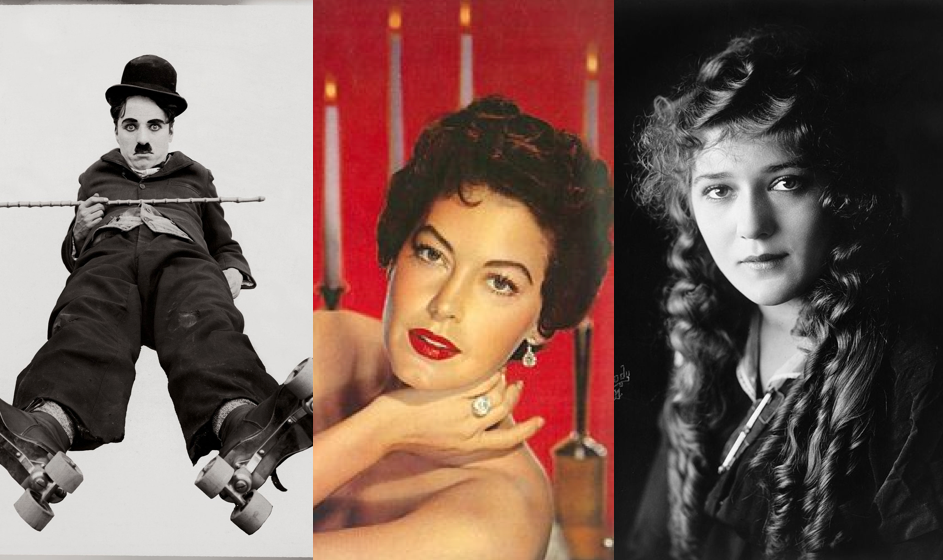 Image from Facebook and Wikipedia
Image from Facebook and Wikipedia
More than just a pretty facade, the theatre and building is remembered fondly by many Singaporeans because of the memories forged there.
Top image from NAS.
1819 is a labour of love by Mothership.sg where we tell stories from Singapore’s history, heritage & culture. Follow us on Facebook, Instagram and Twitter!
If you like what you read, follow us on Facebook, Instagram, Twitter and Telegram to get the latest updates.
